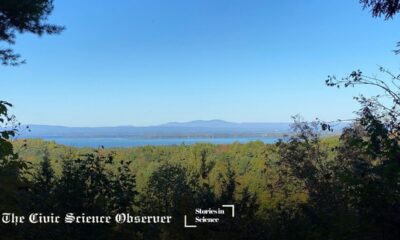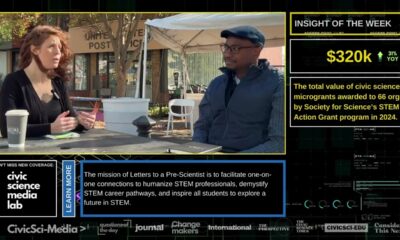Stories in Science Special Series
A Development enhancing tale with a microbial rich cocktail

Minisha Pereira
Dr. Minisha Pereira, Ph.D., is a Research scholar from Indian Council of Medical Research -National institute of Malaria Research, Field unit Goa, India. Her main area of Research is Vector biology which includes aspects of microbiology and molecular biology. Her recent publication titled “Characterization of midgut microbiome of Anopheles stephensi Liston” was published on March 2021 in Journal of vector borne diseases. The narrative below explores the story behind the unseen facts from her published work. She wants to bring the concept of her research in way which will be appreciated and also bring awareness to sustain public health. You can follow Dr. Pereira on Twitter @HMinisha.
Key Point
Spreading awareness among each other doesn’t need a lot support. But it necessitates a kind heart, a strong mind, and a never-fading goal. Let us identify the ways to save ourselves from vector-borne diseases and pests to live in harmony with nature and preserve the majority of useful insects. In these times of pandemic as we are living in anxiety and fear, Let us unite ourselves as beings and stop the spread of COVID far and near.[/su_boxnote]
With thoughts of COVID gushing in my mind, I was sitting down the lane next to my research lab during one evening time. Just then, I heard the conversations that got me stunned and startled. A conversation between two mosquitoes, sharing their knowledge and their thoughts. Curiosity and excitement gushed within me, leading to an elevated enthusiasm enforcing me to listen to their entire conversation.
The story was between two mosquito friends Anopheles stephensi and Anopheles subpictus who shared their thoughts about their current life status. So, without any delay, let us start the conversation replay…
An. subpictus: Hello!! My dear friend do you know we are at the brink of losing our significance because of COVID-19 outbreak globally??
An. stephensi: Do you feel so? My friends in scourges are already spreading Malaria. Luckily, the whole world around is so busy with the pandemic that they lost their focus on us.An. subpictus: Ohh great! But can we be as deadly as the virus?
An. stephensi: Deadly?? Stop misjudging yourself. We can be very fatal to all mankind, even though that’s not our intention. Our mission in life is to feast on their blood but, that cunning parasite (Plasmodium) that comes along during our bloody diet can cause sickly malaria. With chills and shakes, we can make an all-powerful man go crazy and also cold-hot-sweaty.
“A few decades ago, actually around 1987, our ancestors set their sight on the lovely state of Goa, just like tourists. We made such a Merry in Goa, dancing and feasting so much on the blood that hundreds of people were put down with malaria and some did not raise again. Yes! They were dead and gone. But then they took revenge on us and something horrible happened to us. These creatures, the humans, do not give up easily as they say.
An. subpictus: What did they do?
An. stephensi: They set up a big institute named ICMR-NIMR (Indian Council of Medical Research-National Institute of Malaria Research) to pack us off from Goa. The team NIMR chased us so much that we were so scared. Clever that they were, firstly they started learning everything about us, our lifestyles, our activities and behaviour. With their knowledge and expertise, they managed to attack our homes (breeding sites: artificial containers, wells, freshwater pools, stream margins, water storage containers, construction sites) affecting all our kids (immatures: larvae & pupae) thereby leaving us homeless using all different kinds of ways. If they had used DDT powder, nothing much would have happened to us as we can deal with it.
But they were destroying our homes, clearing the water, using bacterial powder where our kids thrive. And that was not enough, they started to release fish that would pick up our kids (larvae and pupae) and eat them in hundreds. (Mosquito cries).
An. subpictus: But then how did you manage to continue to survive?
An. stephensi: You see we may be small but we are powerful. Nature has created us much before man, who tends to relax and celebrate his successes. But we mosquitoes are serious about our living and keep doing our jobs even at night and produce batches of eggs every 48 hours and thus manage to survive being so potent and productive.
Hey! There is some big Office WHO in Switzerland where they discuss us. Can you imagine our power? They were saying our entire sister species put together; we globally kill more than 400 000 humans every year. We don’t spare pregnant ladies and young children. They are our first targets. But again, that clever man has an answer. They have started using insecticide-treated mosquito nets (ITNs) and preventive antimalarial medicines which are so effective that we are losing our sting power.
An. subpictus: Oh yea!! Then this Goa team trained their guns on me recently and started blaming me for spreading malaria parasites from sick to the healthy alongside you, stephensi. They have found this out using a special machine called PCR.
An. stephensi: Yes these ICMR guys have turned out to be a big threat to all of us the last few years. I even heard that a Ph.D. student Minisha (author) is also working on various kinds of bacteria in our tummy (midgut microbial diversity) which she is planning to use against malaria-causing parasite Plasmodium.
She has killed hundreds of us to study our bacteria. One of our friends who escaped her slaughter voiced out. This Minisha first gives them a special clean-up! She calls it surface sterilization of our babies and us and then cuts us open, reaches our stomach and crushes it, and puts it on some medium to multiply these bugs in our stomach and study them.
An. subpictus: Oh My God!! May their soul RIP!! What she must have done after that?
An. stephensi: I heard that she has recognized (identified) many of them and she is calling them by names. Using so many chemicals and complex methods she has identified bugs that are already dead in our stomach and fail to grow. I heard her calling this method as molecular technique Metagenomics. I have never heard of these difficult words. But, she says, her work can be very helpful for us too.
An. subpictus: How is that possible? On one side she is doing this to harm us and on the other, she is spreading this news? What is the basis? You don’t believe her blindly.
An. stephensi: She identified microbes from our friend’s midgut and matched them with those residing in the curing water habitat where our babies live and also matched them up with us who are jailed in her laboratory. I even heard her saying that some of these bugs (microbes) help us grow from babies (larvae and Pupae) to adults.
She claims that our friend’s breeding and their larvae feeding in the laboratory in tap water have different bacteria in their stomach than the one she identified from curing waters. Since field water is healthier and has more variety of these bacteria, I have started to lay my eggs in the field sites so that I have stronger offspring with greater immunity. Is not she crazy???
An. subpictus: Oh really? That’s cool!! I think even I should tell my friends to do the same.
An. stephensi: No doubt’s she is a crazy girl. She did not stop here. She even treated hundreds of our friends with an antibiotic (Tetracycline hydrochloride) and compared their life events with our friends from the field and Laboratory population. By doing this she studied the influence of the microbe on our life cycle. Our sisters who received this special treatment laid a fewer number eggs compared to others who did not. That means these tummy bacteria are important for us.
An. subpictus: But my friend, I am warning you because she may be doing something else to control us. It is possible that she may be doing this for the same purpose.
An. stephensi: whatever she does she will do to put us down. I heard she has got some bacteria common in water, our babies, and us.
She got different kinds of bacteria common in all the stages viz. water, larvae, pupae, male and female by a metagenomic approach. She also confirmed the presence of Pseudomonas along with few more microorganisms. She says she will try to manipulate them against us for vector control.
An. subpictus: oh no!! I think her research is going to be a big threat to all of us in Goa.
An. stephensi: yes indeed! This crazy budding Scientist is dangerous.
An. subpictus: what you think we should do now
An. stephensi: First let us go and show her our power. We both will go and bite her.
An. subpictus: No! We should avoid her. She may catch us and open our stomachs also.
An. subpictus: Then let us be smart and use her study in boosting our immunity just like humans, who are enhancing theirs against COVID-19 now days.
An. stephensi: How do we do that?
An. subpictus: Let us breed and drink water from curing water site, the water-rich in the microbiome. Her research showed an increase of Bacillus sp. in tap water while more diversity of microbiome in the curing water habitat. This will boost our immunity making us stronger and healthier.
An. stephensi: subpictus my friend, we had a very informative dialogue. I will surely inform all my friends and also see that they take the precautions.
An. subpictus: Yes indeed, in fact, I asked my friend to stay safe because I heard she is searching for some more mosquitoes for her further research. In short, humans are running away from the Coronavirus and we should from this mosquito girl. People do not understand that we don’t harm humans intentionally. Since we need blood for the sake of our eggs and the future. If that was not the need and requirement we wouldn’t have bitten them, unlike males who only feed on nectar for their survival.
An. stephensi: it’s the law of nature and no one can change that, ultimately, it’s the fight for survival and the fit shall survive.
An. subpictus: yes, so true I just hope now the pandemic subsides so that we regain our importance very soon.
An. stephensi: Don’t worry my friend, this autumn will be a new start for us and for all mankind let us hope for the same.
Ending the conversation, both the mosquitoes bid goodbye to each other and went away. As they dispersed, I was left pondering so many questions.
Read more on the Journal of Stories in Science
The CS Media Lab is a Boston-anchored civic science news collective with local, national and global coverage on TV, digital print, and radio through CivicSciTV, CivicSciTimes, and CivicSciRadio. Programs include Questions of the Day, Changemakers, QuickTake, Consider This Next, Stories in Science, Sai Resident Collective and more.

-
Audio Studio1 month ago
“Reading it opened up a whole new world.” Kim Steele on building her company ‘Documentaries Don’t Work’
-
Civic Science Observer1 week ago
‘Science policy’ Google searches spiked in 2025. What does that mean?
-
Civic Science Observer1 month ago
Our developing civic science photojournalism experiment: Photos from 2025
-
Civic Science Observer1 month ago
Together again: Day 1 of the 2025 ASTC conference in black and white
Contact
Menu
Designed with WordPress

























